In this blog entry, I want to tell you about my experiences hitchhiking through Europe. I’ll also take a look at some of the clichés about hitchhiking, and further down there’s a section with tips if you ever hitchhike too!
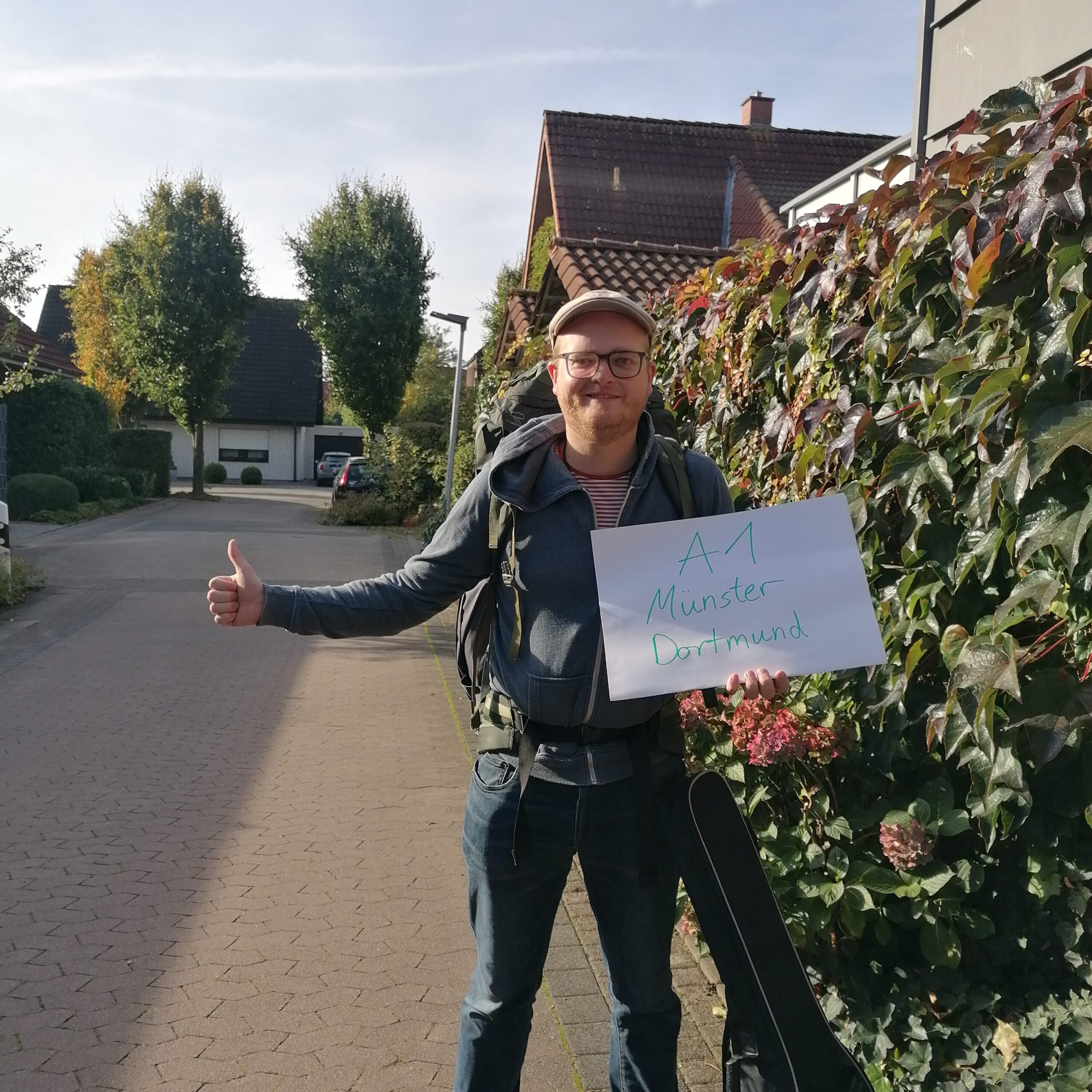
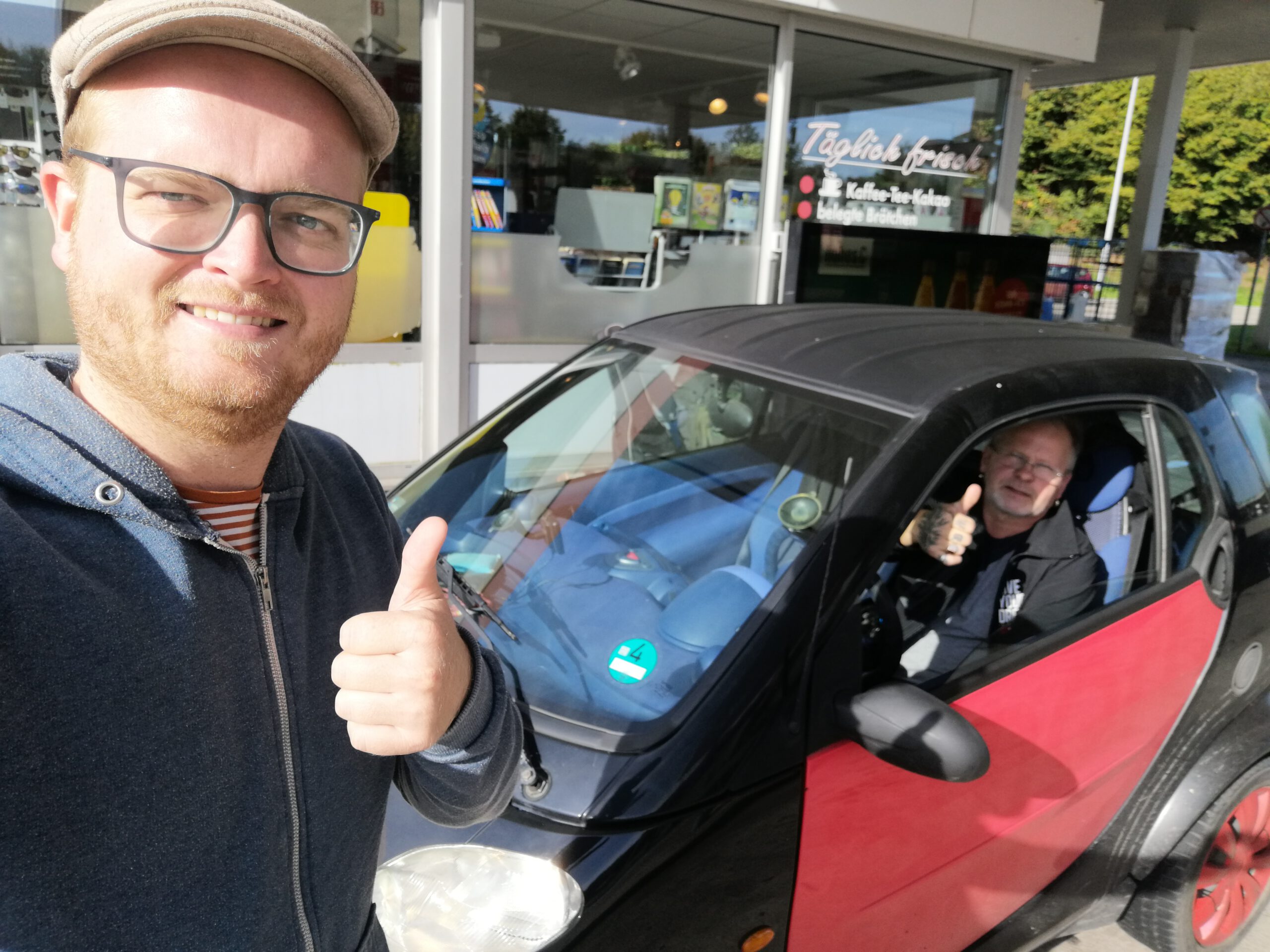



From Münsterland to Southern Spain
On 10 October, I started in my hometown of Emsdetten. 25 cars and 3597 kilometres later, I arrived in La Linea de la Concepción near Gibraltar and met 41 people and a dog on the way. With the dog it was probably the most exhausting journey (although one of the most beautiful), as he shed hair and needed a lot of cuddling.
My longest ride was five and a half hours with Sarah, a Brit, from Geneva to just before Marseille. The shortest ride was for 3 minutes with Thanh, a Vietnamese man who gave me a lift to the centre of Winterthur.
For me, hitchhiking was a super great experience and way to travel and I will definitely continue to do it both during the trip and afterwards. Hitchhiking turns the journey into a destination and you get to know the environments you are travelling in in a completely different way than if you go to one (bus) station and get off at the next one. Above all, you get to know people you would otherwise never meet. For example, I travelled with a Russian and was able to talk to him about the war in Ukraine. In this blog post, I describe the encounter in more detail. I also describe two other great encounters, with a British woman from Switzerland, with whom I sang German music in the south of France, and with Mattia and Didi, who took me in when I was stranded near Lausanne.
I think the connection you have when hitchhiking is also special because both sides trust a stranger. In some cases, intense & intimate conversations have arisen precisely because we knew that we would probably never see each other again. One woman told me about her separation after 35 years of marriage; in other contexts she might not have done that.
But of course it doesn’t have to be that way. For example, I went with a man who didn’t ask me a single question, not even after I told my cousin about the trip on the phone and he listened in. But interestingly enough, he answered my questions in detail 😀
When hitchhiking, you meet people with whom you share the same views, like Fabian from Hesse, who has been supporting sea rescue for years, as well as people who have very distorted opinions, like Josef, who lives in Germany as a Pole himself, but said that we have a problem with foreigners and that more should be said in school about what good Hitler did.
I met people who have never given anyone a lift and, on the other hand, David, who has hitchhiked thousands of kilometres in Europe and Australia and, when he has time on the motorway, stops at every service station to see if there are any hitchhikers there – man of honour!
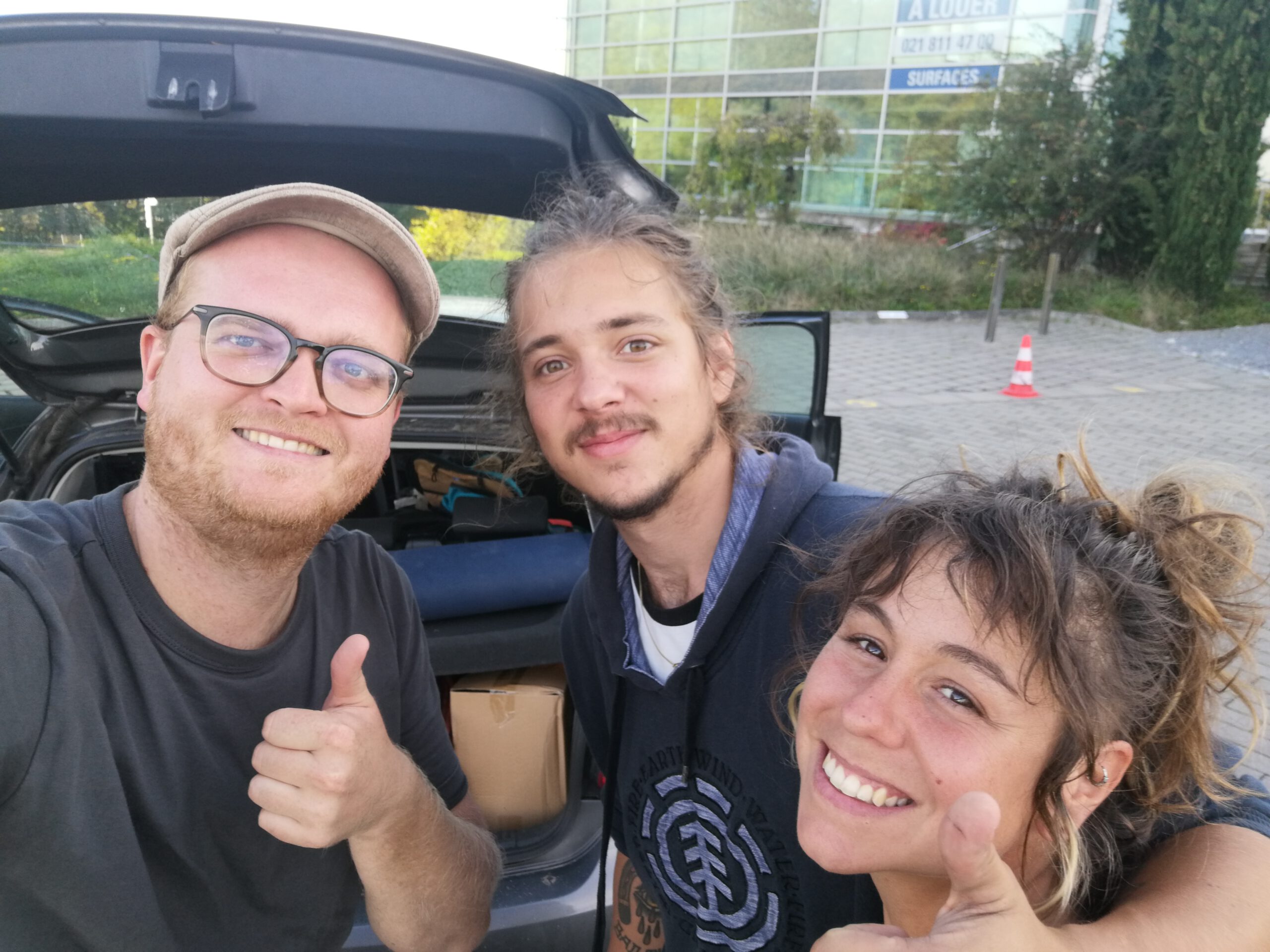

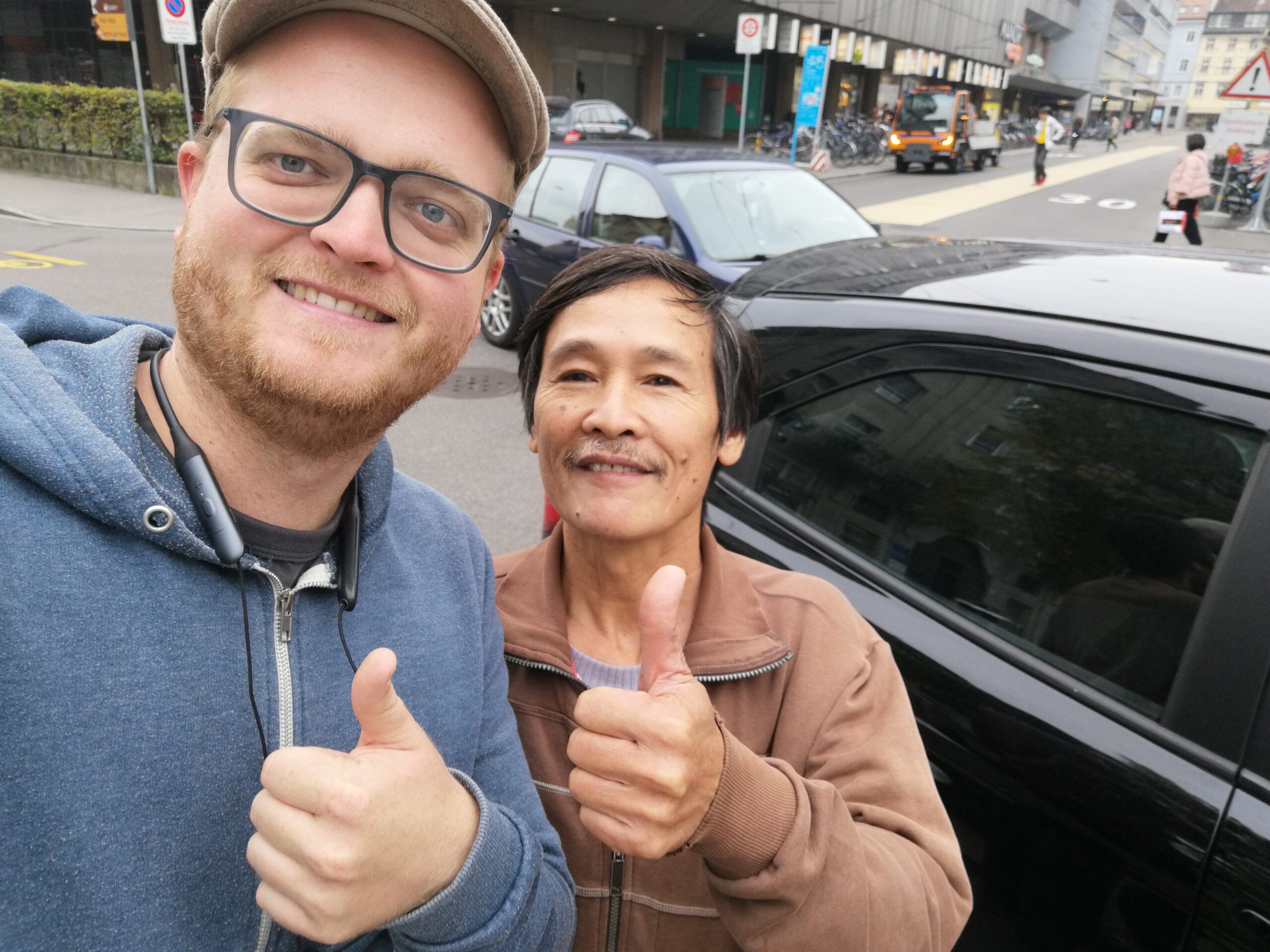
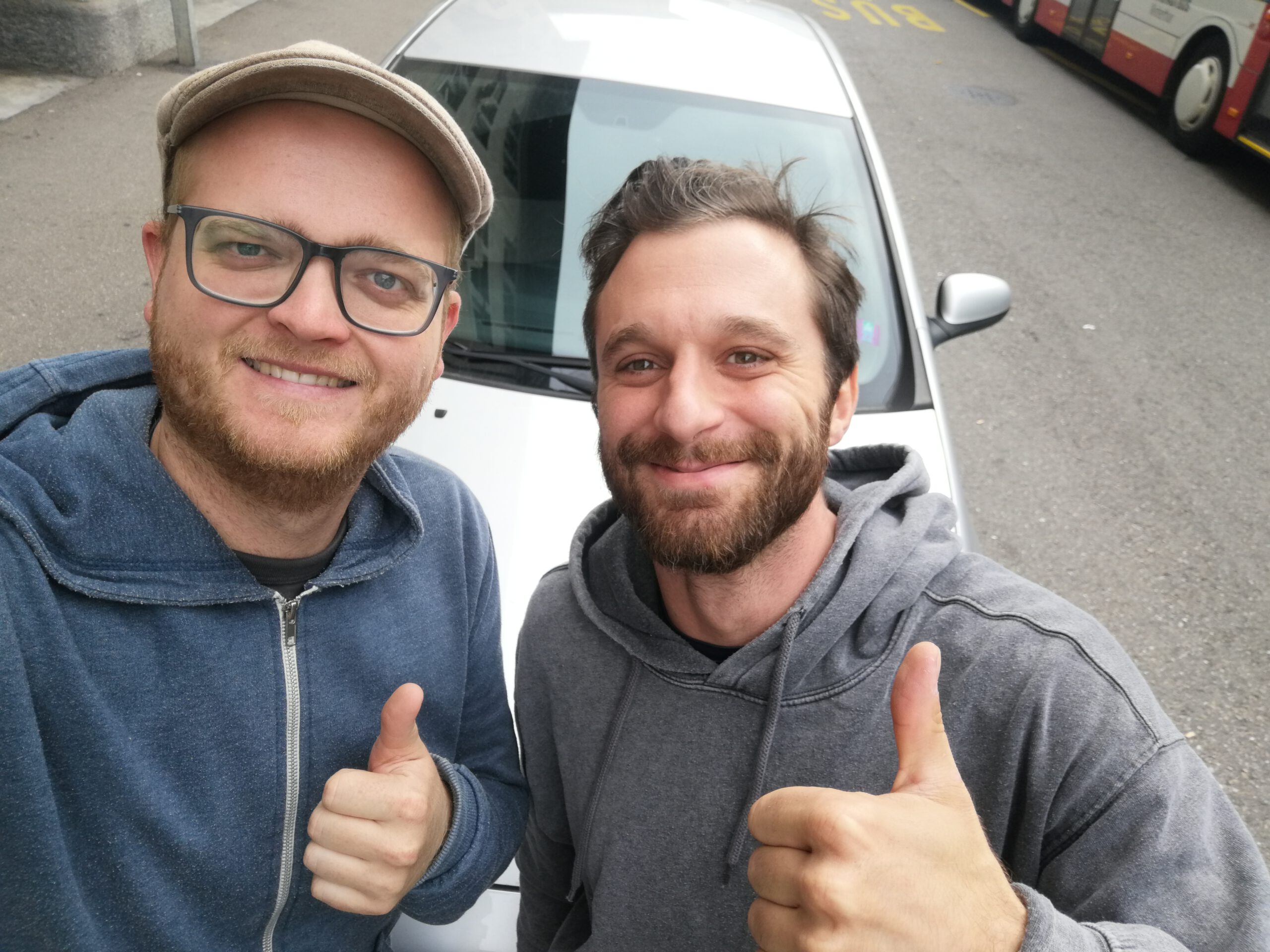
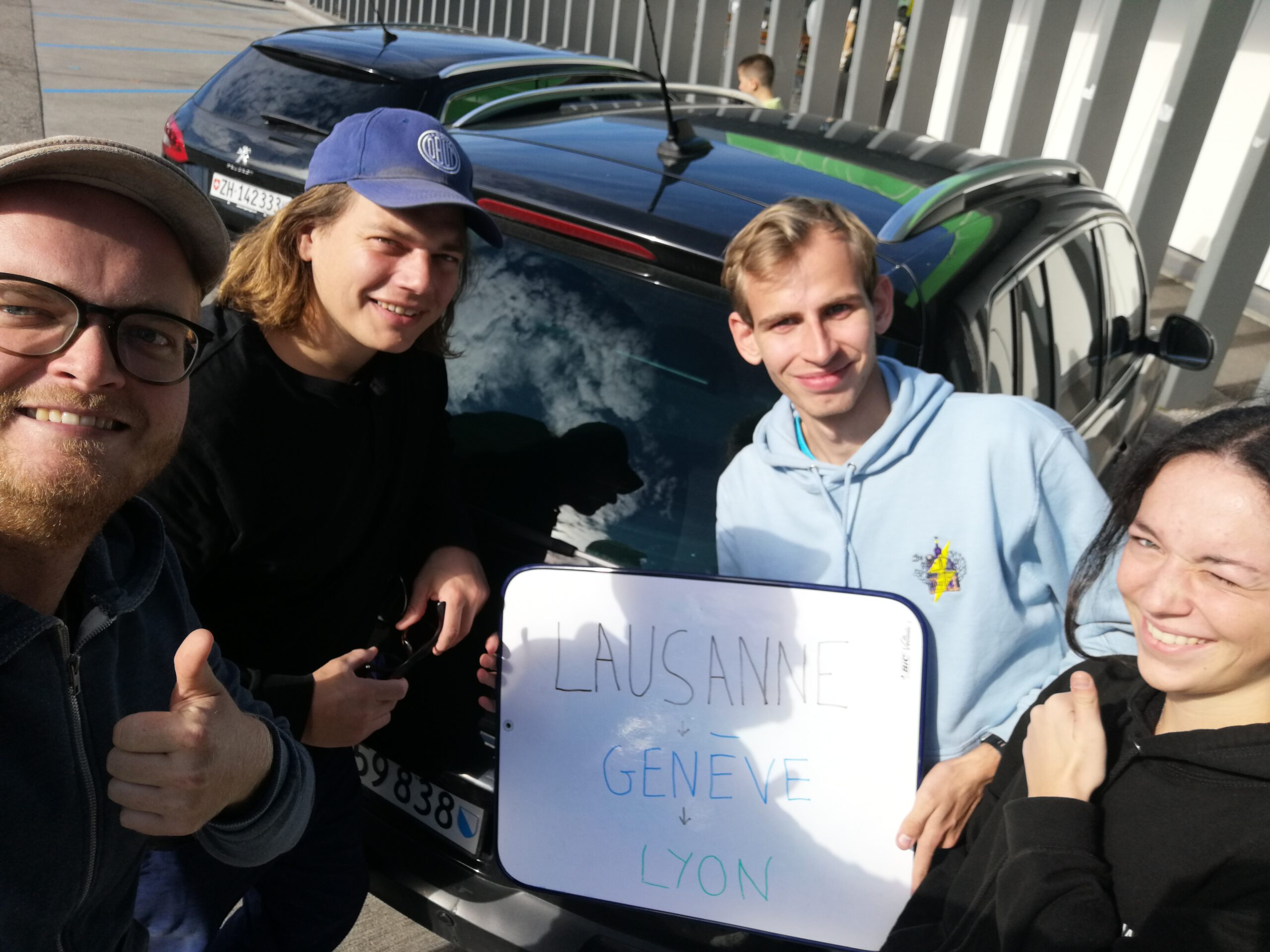
You want to hitchhike? Nobody does that any more…?
I was told a lot before that hardly anyone hitchhikes anymore and I have rarely seen people hitchhiking. And indeed, even as a hitchhiker, I got the impression that very few people choose this mode of transport nowadays. Apparently, 20/30 years ago it was still the norm. I interpret this to mean that, firstly, the options for getting around have become much more numerous in recent decades, people generally have more money, and that trust in others has also decreased. I’m curious to see what that will be like in 20 years.
I’m curious what you think about it and whether you agree with me.
In Switzerland, hardly anyone will take you, in France it’s much easier.
I have to disagree with this statement alone, because I am suspicious of such sweeping statements. Irrespective of this, however, I have had completely different experiences in some cases. It may be that hitchhiking is more widespread in some countries, e.g. France, and a long-term experiment would show that 17% more cars stop in France. And in other countries the scepticism is already greater: in Spain and Switzerland, for example, I had the feeling.
But in both countries I found carpools just as well as in France, sometimes even much faster. In Switzerland, I usually didn’t have to wait 5 minutes! (Once, however, I didn’t get away at all, but once in France, too).
In the end, it depends much more on where you are, how you behave, who is on the road at the moment, etc. You’re often more likely to be met by foreigners anyway. Often, you are more likely to be picked up by foreign travellers anyway, as they follow similar routes and are closer to the hitchhiking lifestyle.


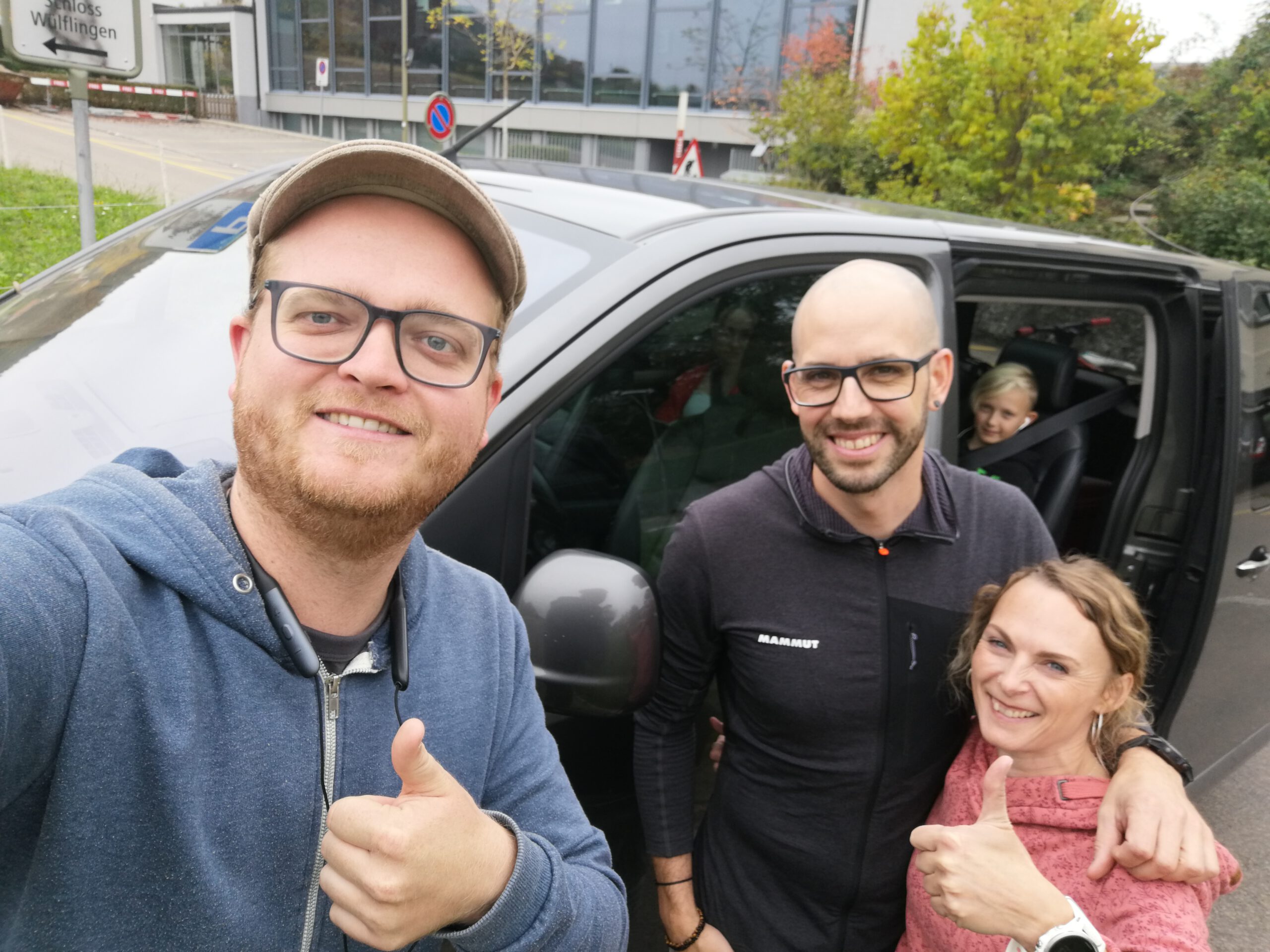


Tips for Hitchhiking
If you can imagine hitchhiking, first of all take heart: Have the courage, it will be good! Of course, it can be exhausting, but if you feel like it, hitchhiking won’t disappoint you. Here are a few tips to make hitchhiking more relaxed:
- First things first: you need time. Sounds banal, and it’s actually obvious, but I have sometimes been very impatient. And the essence of hitchhiking is that you can’t plan exactly when and where you’ll arrive.
It’s most relaxed when you don’t have a clear goal for the day, but just try to get as far as possible. But it’s also clear that sometimes you simply have a goal because you’ve booked accommodation or informed a friend you’re visiting, and then you think about how far you’ll get.
Then it’s best to plan twice as much time as you would otherwise need by car. That’s a good rule of thumb. It can definitely be quicker, but in some cases it was even longer for me because I was standing somewhere where I simply couldn’t get away. - Find out about the route. Check what route you would take by car to get to your destination or in that direction and update yourself several times a day. Maybe there’s a roadblock on the way and no one is going where you want to go.
Put yourself in a place where drivers can see you easily and stop and go in the right direction. The more other routes there are for cars, the less likely you are to get a lift. - Talk to people. It works best where you can talk to people. This way they get a brief (hopefully) sympathetic impression of you and don’t have to decide within seconds. I’ve also been picked up by people who only turned me down because they had time to change their mind afterwards at the petrol station. When they drive past you, it’s not so easy.
- Try to look friendly and be easily recognisable. Sunglasses and hats pulled up to your face are not a good idea!
- Service stops are ideal! You can talk to people there and they are all going in the same direction! That’s why it’s best to get out at rest stops in case you and the car part ways at some point. As a rule, you’ll get off much worse elsewhere. It can also be an option to take a bus or train out of town and walk to a rest stop. Important: there is a difference between rest areas and service stations, because at the latter people can drive in different directions.
- Paint a sign – maybe!? There are discussions among hitchhikers whether signs help or it is better to address people directly. If you have no way of addressing people and there are several route options for cars where you are, there is no way around a sign. I also liked to use one at rest stops when I approached people. Then they visualised what you were telling them.
- Check the site hitchwiki.org. You’ll find tips on how to hitchhike in and out of many cities. But check again whether the connections listed there still exist, as some of them are a bit outdated.
- Stay flexible. If someone is not going where you had planned, but would bring you closer to your destination, it is well worth considering hitching a ride with him or her.
- Don’t give up, but consider alternatives. Unfortunately, you may have to wait longer and, depending on your mood, you may be totally demotivated. Check in between if and how late there might be alternatives like bus or train, so that you can get to your destination in another way if necessary. Sometimes I was more relaxed when I knew that there was an alternative if I couldn’t get there at all.
- Do your thing. Feel free to ignore half of my tips. Everyone finds their own way to hitchhike 😊

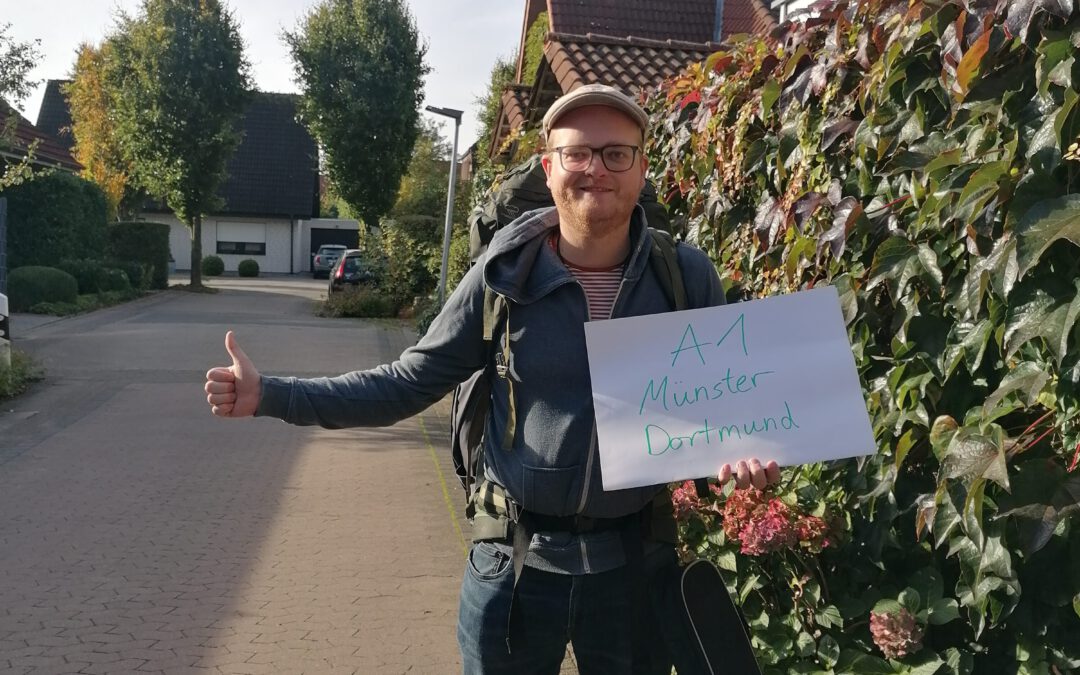
Leave a Reply